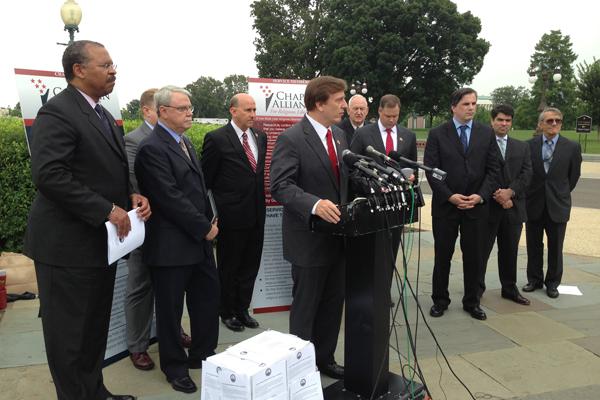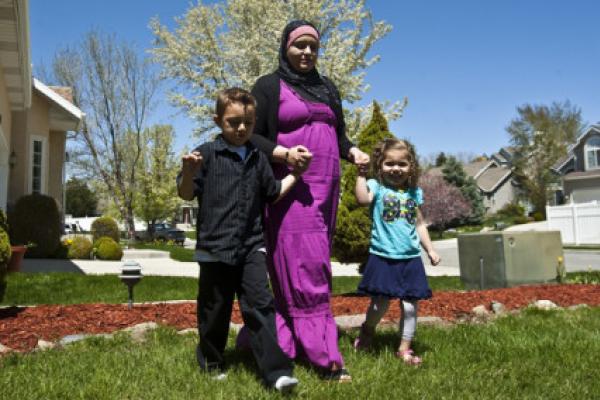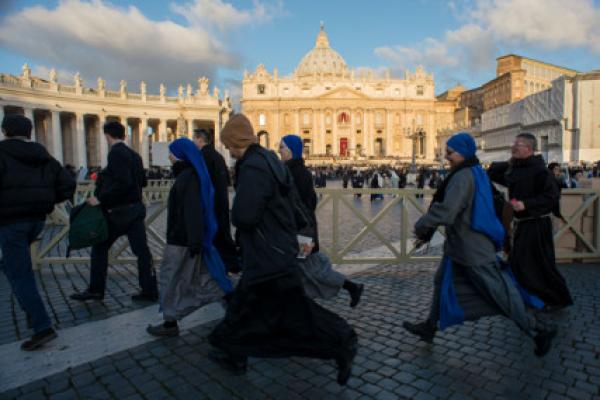Republican lawmakers and conservative activists concerned that religious expression in the military is “under attack” are rallying behind a measure to provide greater protection for religious “actions and speech” in the armed forces.
The amendment, sponsored by Rep. John Fleming, R-La., would specify in the military spending bill that, “Except in cases of military necessity, the Armed Forces shall accommodate the beliefs, actions, and speech” of service members.
Previous spending bills protected the “beliefs” of service members and chaplains, but the 2014 National Defense Authorization Act would expand protections to include religious “actions and speech.”
SALT LAKE CITY — Every day. For a month. From sunup to sundown. No food. No water.
No sweat?
No, plenty of sweat, especially this year.
With Utahns baking under energy-sapping, forehead-dripping, water-chugging temperatures, the state’s Muslims are swearing off that liquid life force during the heat of the day — and the morning, and the evening.
The annual 30-day fast known as Ramadan, one of Islam’s five pillars, began Tuesday and requires that believers forgo food and drink. At this time of year, that means 15 hours of parched throats and unquenched thirst.
VATICAN CITY — The Vatican has been called to give detailed information on its record on child sexual abuse to a United Nations panel, a move that will show how Pope Francis wants to handle an issue that has deeply scarred the Catholic Church’s image in the past decade.
The Geneva-based U.N. Committee on the Rights of the Child has asked the Vatican to “provide detailed information on all cases of child sexual abuse committed by members of the clergy, brothers and nuns.”
The request comes ahead of the Vatican’s scheduled appearance in front of the committee in January 2014.
When you think of an evangelical Christian, do you think of a climate scientist who is passionately concerned about the impact of climate change?
After this week, you should.
Over 200 top scientists who identify as evangelical Christians from across the country released a letter this week calling on Congress to act on the moral and scientific imperative to address climate change. The letter — framed in scripture — points to the call to care for the poor and steward God’s creation as key elements contributing to their concern.
What kind of tentmakers are we? Are we more like Martha, so preoccupied with busywork that we neglect our neighbors, the guests of honor? Do we stand by and rejoice in the misfortune of others suffer the consequences of their own doing, rather than inviting them in and making room for them at the table, under the protection of our shade? When we see a stranger come by, do we drop everything, bring out the best of what we have and sit at their feet in humble service?
As House republicans meet today in a private meeting to strategize on their approach to immigration reform, all eyes are watching and urging them to steer away from unpractical solutions and enact commonsense immigration reform.
The Wall Street Journal issued an opinion editorial today naming evangelicals as a critical group at risk of being "ignored" if House lets the bill die. The Journal writes:
The dumbest strategy is to follow the Steve King anti-immigration caucus and simply let the Senate bill die while further militarizing the border. This may please the loudest voices on talk radio, but it ignores the millions of evangelical Christians, Catholic conservatives, business owners and free-marketers who support reform. The GOP can support a true conservative opportunity society or become a party of closed minds and borders.
Read more here.
Last month's job report shows 16 percent of young adults who consistently seek full-time employment are unable to find work. The report shows that a high number of well-educated, trained, and productive youths are among those getting denied the opportunity for a better future. The Guardian reports:
High youth unemployment causes immediate and long-term economic damage. It means young adults take longer to get married, buy homes and begin families. In the long run, it means slower economic growth and lower tax receipts. Countries with prolonged high levels of youth unemployment risk social instability.
Read more here.




